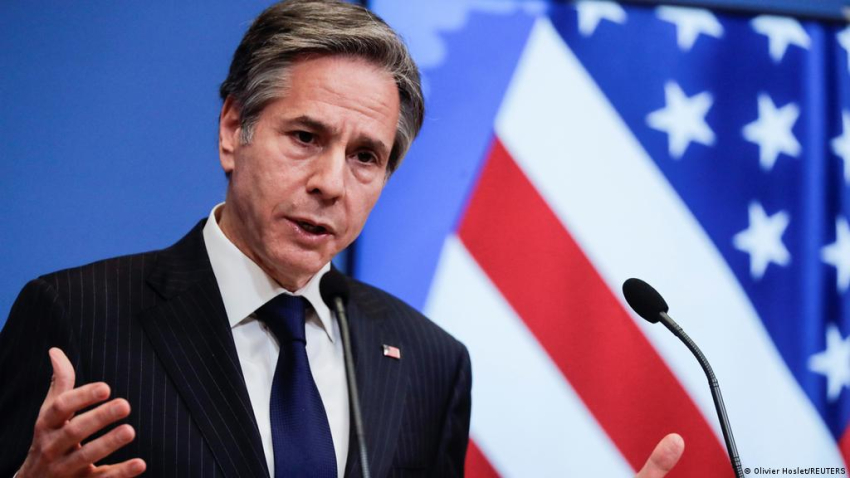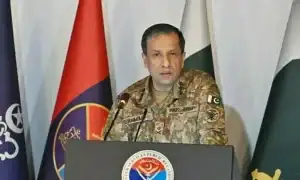WASHINGTON – The United States has commended Pakistan for hosting a vital session of the Organisation of Islamic Council (OIC) on Afghanistan.
US State Secretary Antony Blinken shared a tweet in this regard and hailed Pakistan for hosting the extraordinary session of the OIC Council of Foreign Ministers to discuss the deteriorating situation in Afghanistan.
“The OIC extraordinary session on Afghanistan is a prime example of our collective determination and action to help those most in need. We thank Pakistan for hosting this vital meeting and inviting the global community to continue cooperating to support the Afghan people,” US senior official wrote on Twitter.
The OIC Extraordinary Session on Afghanistan is a prime example of our collective determination and action to help those most in-need. We thank Pakistan for hosting this vital meeting & inviting the global community to continue cooperating to support the Afghan people. #OIC4Afg
— Secretary Antony Blinken (@SecBlinken) December 22, 2021
Blinken in another tweet announced that the US has sent the Covid-19 vaccine to war-ravaged Afghanistan.
“The first tranche of 1M COVID-19 vaccine doses arrived in Afghanistan today, adding to the 3.3M the U.S. previously provided via #COVAX. We are committed to supporting the humanitarian needs of the Afghan people, which includes providing safe and effective vaccines to save lives”, he added.
Pakistan on Sunday hosted the extraordinary session of the Council of Foreign Ministers (CFM) of the OIC, where Muslim nations resolved to work with the United Nations to try to unlock hundreds of millions of dollars in frozen Afghan assets in a bid to tackle a growing humanitarian crisis.
Representatives of 57 Islamic nations, as well as observer delegations, participated in the session during which it was decided to set up a Humanitarian Trust Fund and Food Security Programme to deal with the rapidly aggravating crisis.
OIC agrees to set up humanitarian fund, launch food security programme for Afghanistan
The unanimously adopted Joint Resolution brings a glimmer of hope for the 22.8 million people – more than half the population of Afghanistan – who face acute food shortage. Around 3.2 million children and 700,000 pregnant and lactating women are at the risk of acute malnutrition.
The document adopted after day-long deliberations here at the Parliament House building also expressed solidarity with the Afghans and reiterated the commitment of the OIC Member States to help bring peace, security, stability and development to Afghanistan.
The extraordinary meeting was convened as the UN’s estimates warned that 60% of Afghanistan’s 38 million people face “crisis levels of hunger” and that the situation was getting worse every day. The OIC also expressed deep alarm at the deteriorating humanitarian crisis in Afghanistan.
Prime Minister Imran Khan earlier in his keynote address warned, “Unless action is taken immediately, Afghanistan is heading for chaos.” He said “chaos suits no one” and urged the world to understand the gravity of the situation and reach out to the Afghan people who were facing starvation.
The Council of Foreign Ministers also took into account the fact that the United Nations High Commission for Refugees has pointed out that 665,000 people were displaced within Afghanistan between January and September 2021 – in addition to the 2.9 million people already internally displaced by the conflict in Afghanistan.
The meeting expressed deep alarm at the worsening economic situation in Afghanistan, which it pointed out was further compounded by the continued freeze of overseas Afghan assets as well as other international assistance, exacerbating the urgent cash-flow problems, including payment of remuneration to public officials, and hindering the provision of essential public and social services to the people of Afghanistan.
The session, which was also addressed by Foreign Ministers of Saudi Arabia, Turkey, Niger, Jordan, OIC Secretary-General, UN Emergency Relief Coordinator, President of the Islamic Development Bank, warned that an economic meltdown in Afghanistan would lead to a mass exodus of refugees, promote extremism, terrorism and instability, with dire consequences for regional and international peace and stability.
OIC moot: PM Imran warns of biggest man-made disaster in Afghanistan if world fails to act














